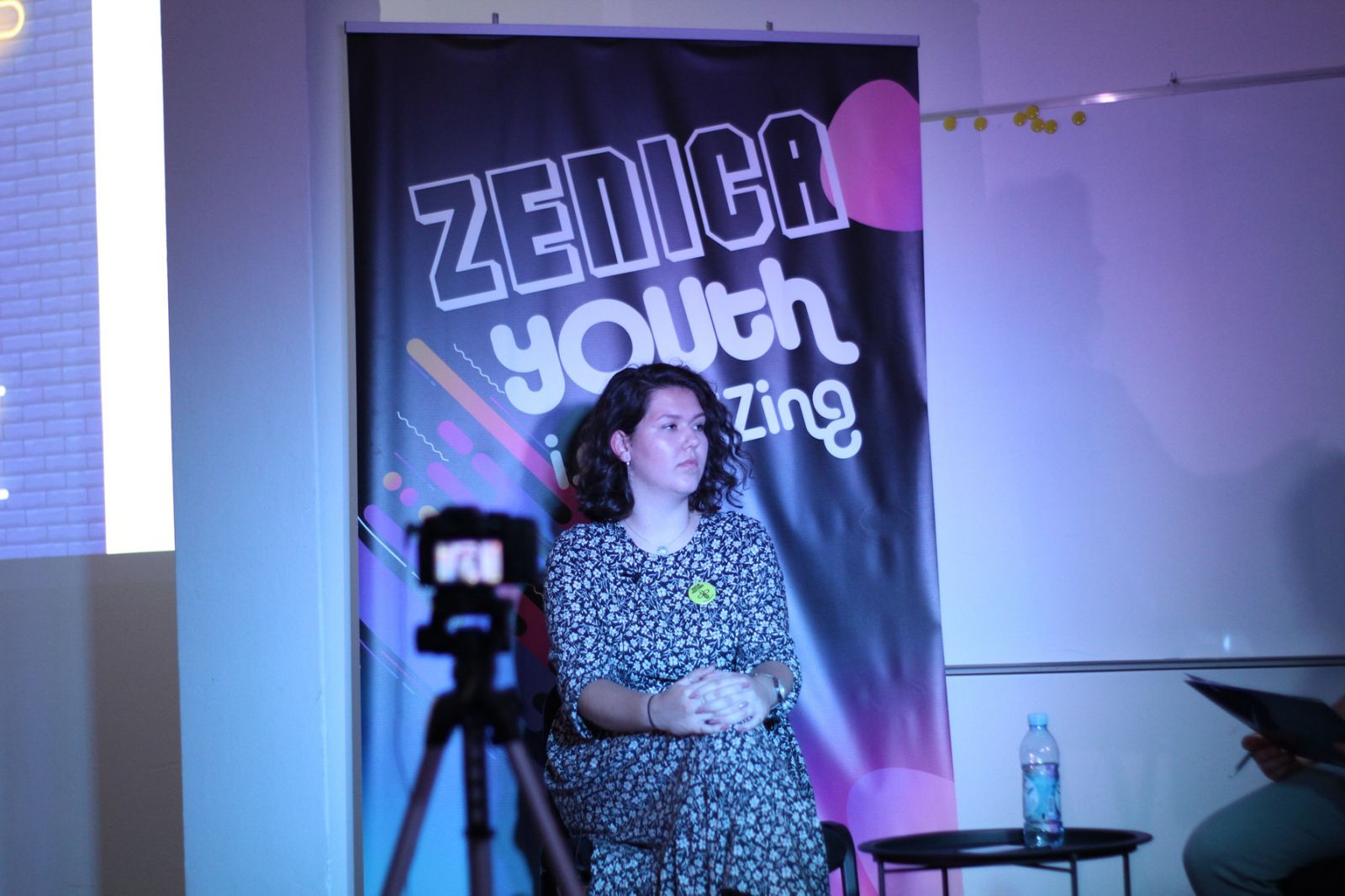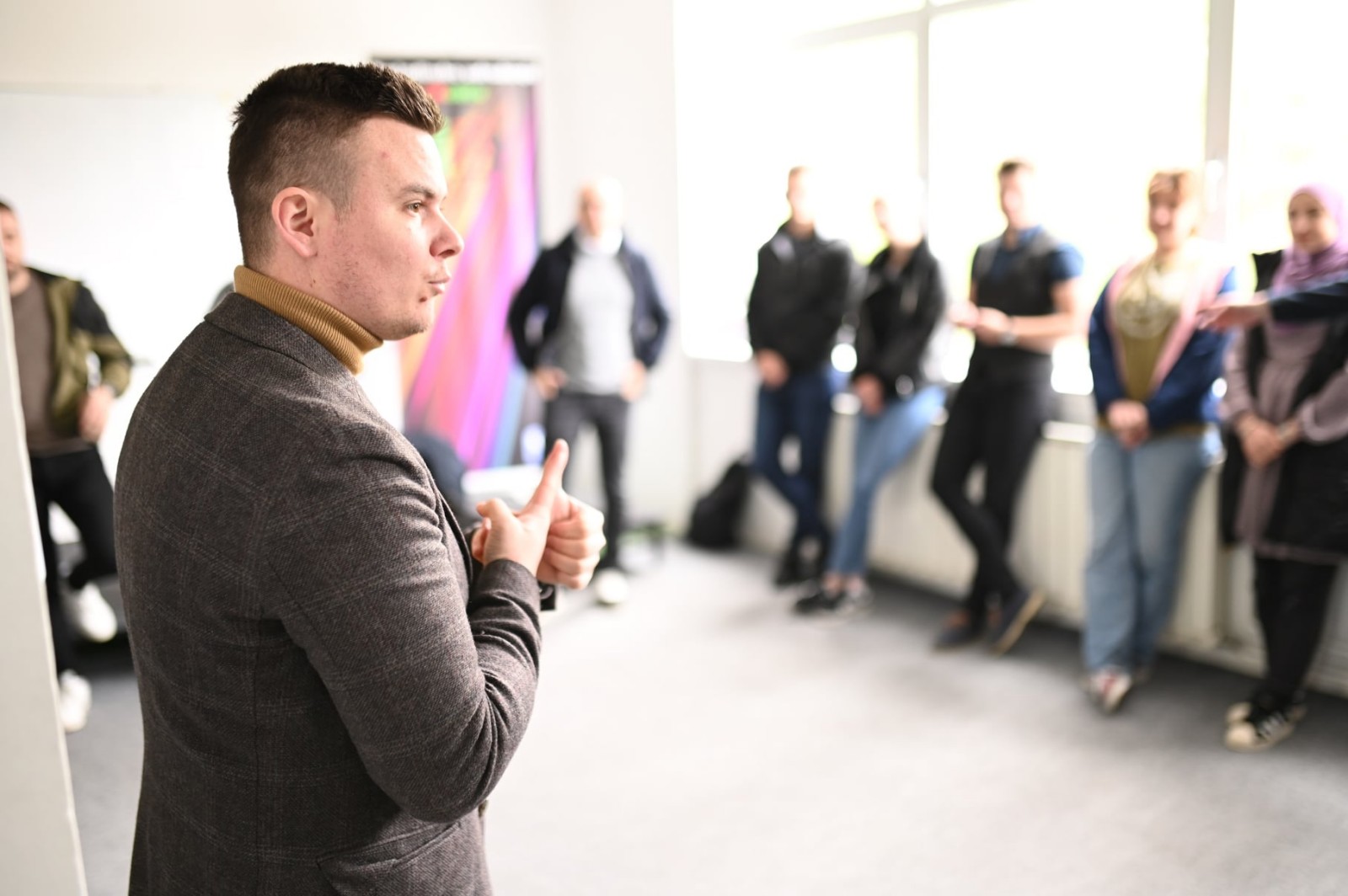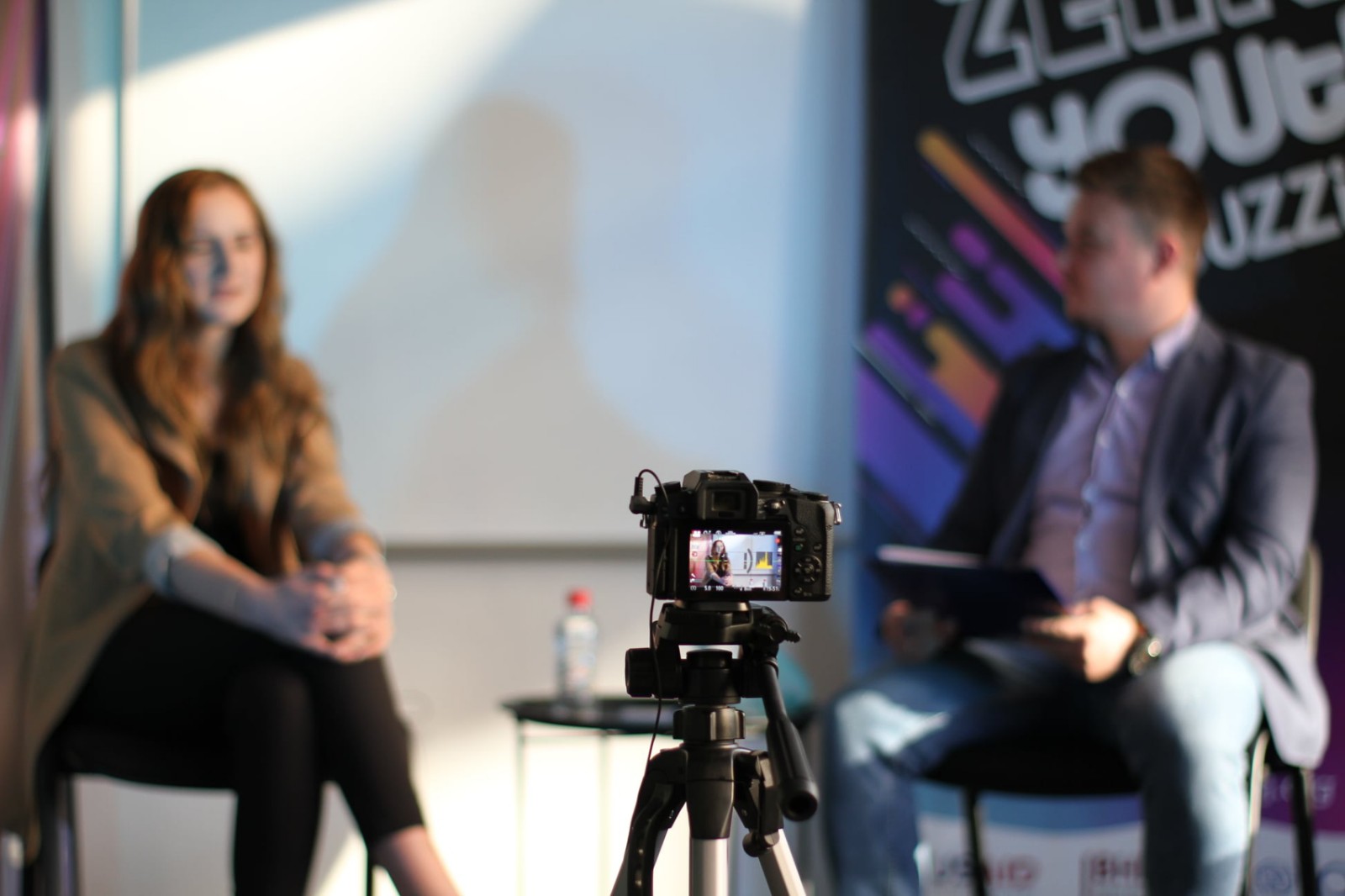
More than 1,000 young people have participated in the activities of the Youth Center Zenica, which was established a little over five years ago in this Bosnian city, in accordance with the Youth Law of the Federation of Bosnia and Herzegovina (FBiH). They have hosted more than a hundred projects and around 500 activities conducted by various organizations from several cities in Bosnia and Herzegovina.
“The space is completely available to all users and guests if their activities are free for young people, that is, the ultimate participants of the activities. This is possible thanks to the City of Zenica, which does not charge rent to the Center and has taken on the payment of utility costs,” said Aldin Alić, the initiator of the Youth Center Zenica.
The idea for establishing the Youth Center Zenica emerged from a need for adequate space identified over ten years ago, Alić says. He added that they utilized the provisions of the Youth Law of the FBiH, which mandates that municipal, city, and cantonal authorities ensure a minimum of measures in the field of work with young people and youth activities, including the provision of suitable spaces for their activities.
Alić and his colleagues, with the help of local and political actors, managed to secure a functional and useful space for the Youth Center Zenica. The Center is managed by the youth association REaktiv, founded by Alić twelve years ago, which works on various projects for young people. In previous years, REaktiv faced the problem of finding suitable venues for its projects, but this did not deter them from continuing their activities, often using their own members’ homes as temporary spaces.
In addition to the REaktiv association, the Youth Center Zenica also hosts other organizations that have faced difficulties finding space. Among them are: Local Foundation Zenica, Studio Theatre, VEDRO, Network of Student Councils in Bosnia and Herzegovina, Youth Bank Zenica, Creatives, Association of Children and Youth with Diabetes, and Parent Network Zenica.
“The most important contribution each organization can make is the activities for their members and users. This way, we make the Center active and functional. Additionally, it is important to note that the organizations network with each other, jointly apply for public project calls, and thus contribute to the visibility of the Center,” said Alić.

For example, the association Creatives initiated the project to build a park for the Youth Center more than two years ago, which received support from the City of Zenica. This has meant that, in addition to the indoor space, the Center also has an outdoor area.
“If we look at the number of activities carried out and the several thousand young people who participated in these activities, we can say that we are on the right track. However, it is still necessary to work on making young people fully feel and want to spend time at the Center,” Alić believes. He highlighted that, last year, the Center conducted a summer program that included various educational, cultural, and other events to provide young people with interesting and quality content.
Alić invited young people to follow them on social media and their website, where they can find information about activities at the Center and also reserve space for their activities if needed.

Indira Agić is an activist and project assistant at REaktiv. She emphasizes that volunteering is primarily a learning process. Namely, it is a pathway towards self-development, and contributing to the local community. She believes that volunteers are left with the feeling of having done something useful and improved the life of at least one person, if not a targeted group. She argues that every person in their teenage years should try volunteering as it provides experience and helps them meet new people.
Indira highlighted the exceptional significance of the Youth Center in Zenica for all young people. “The Center provides a safe and supportive environment where young people can develop their potentials, acquire skills, and achieve their goals. It’s a place of meeting, collaboration, and inspiration, where young people can connect with others, exchange ideas, and work together on projects of mutual interest,” she said.
The Youth Center offers various programs and activities in education, public advocacy, and volunteering. Through activities like “Summer at the Center”, they provide a range of educational and entertaining workshops, activities, and lectures. “We offer young people opportunities to develop skills, acquire new knowledge and experiences, and empower themselves for their future, which is just part of what the Youth Center strives to provide for young people in Zenica,“ Indira emphasized.
She added that the Youth Center is also a space for young people to express themselves, where their voices are heard and valued.
“Through the Center, young people can participate in organizing events and initiatives, thereby actively contributing to the community in which they live,” emphasized Indira. She added that youth social engagement is crucial for building an inclusive, just, and sustainable society.
According to Indira, the contributions, ideas, and enthusiasm of young people have the power to bring about real changes and shape a better future for all of us. “Young people are crucial for the sustainability and legacy of society, laying the groundwork for future progress,” she concluded.






